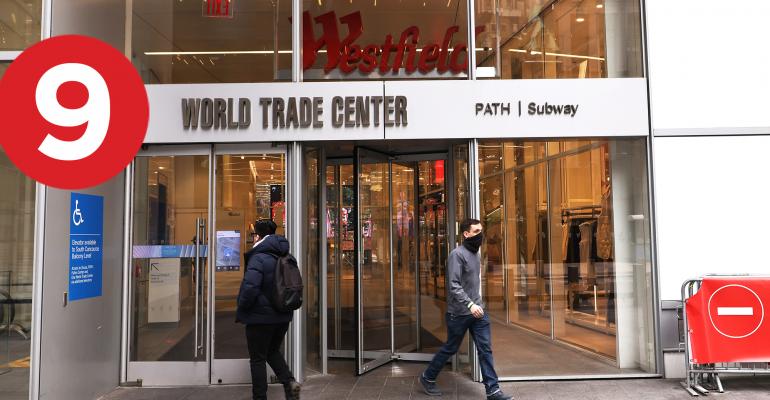- Westfield Mall’s European Owner Says It Is Done with the U.S. “Europe’s largest mall operator Unibail-Rodamco-Westfield SE is closing shop in the U.S., bracing for a potentially sizable loss after it paid about $14 billion four years ago for some of the country’s top-performing malls. Unibail wants to shed most of its U.S. properties by the end of 2023, Chief Executive Jean-Marie Tritant told investors last week, a timeline that some analysts described as aggressive given the current low appetite for mall deals.” (The Wall Street Journal)
- First Washington Realty Acquired Donahue Schriber “An affiliate of First Washington Realty has acquired Donahue Schriber group to form one of the leading outdoor center operators with 150 properties. The combined company will operate as First Washington Realty, whose portfolio will now comprise 20 million sq. ft. of retail space serving some 3,600 tenants in 22 states and the District of Columbia. First Washington is based in Bethesda, Md.” (Chain Store Age)
- Was the Second-Gen Real Estate Boom a Myth or Reality for Restaurants? “As the COVID-19 pandemic moves into its third year, an old real-estate saying seems to be easily transferrable to the limited-service restaurant industry: location, location, location. Two years ago, as operators worried about worsening economic conditions, many experts predicted a huge shakeout that would result in a sizable number of quick-service and fast-casual closings, creating thousands of available second-generation locations.” (QSR)
- Lawsuit Settlement Comes with $3B Homeless Housing Price Tag “The city could spend $3B more to create homeless housing. (Not automatically expanded because 2 MB is too large.” (Bisnow)
- 40% of Emissions Come from Real Estate; Here’s How the Sector Can Decarbonize “From rising sea levels that sweep away coastal properties to heatwaves that cause energy bills to spike, real estate assets face a diverse set of threats from climate change. However, while these physical risks from climate change are often well known to real estate investors, less appreciated are the challenges presented by the low-carbon transition. Nearly 40% of global carbon dioxide emissions come from the real estate sector.” (Forbes)
- Tenants, Landlords Clash Over Rent Guidelines Board Pick “Mayor Eric Adams appointed an economist skeptical of rent control to the Rent Guidelines Board. Landlords say it’s no leg up for them.” (The Real Deal)
- Developers Are Flooding Arizona with Homes Even as Historic Western Droughts Intensifies “California just experienced its driest January and February ever, and the snowpack is dangerously low. As the West enters its third year of drought, water sources are drying up, and restrictions on the Colorado River are now hitting all sectors of the Western economy, inculding homebuilding. While there is a shortage of water, there is also a shortage of housing.” (CNBC)
- Crypto Mortgages Test Home Buyers’ Appetite in Digital Currency World “Some Miami developers have enabled buyers to purchase homes in cryptocurrency since at least 2021. Now a pair of Miami lenders is going one step further by offering home mortgages in digital currencies. Milo, a fintech company in the lending business, made the first crypto home loan in March, when it provided a 30-year mortgage in bitcoin for a Miami duplex.” (The Wall Street Journal)
- Jamie Dimon Yields to Work-from-Home Crowd “JPMorgan Chase will embrace hybrid work while moving “full steam ahead” on its 270 Park Avenue headquarters.” (The Real Deal)
0 comments
Hide comments





